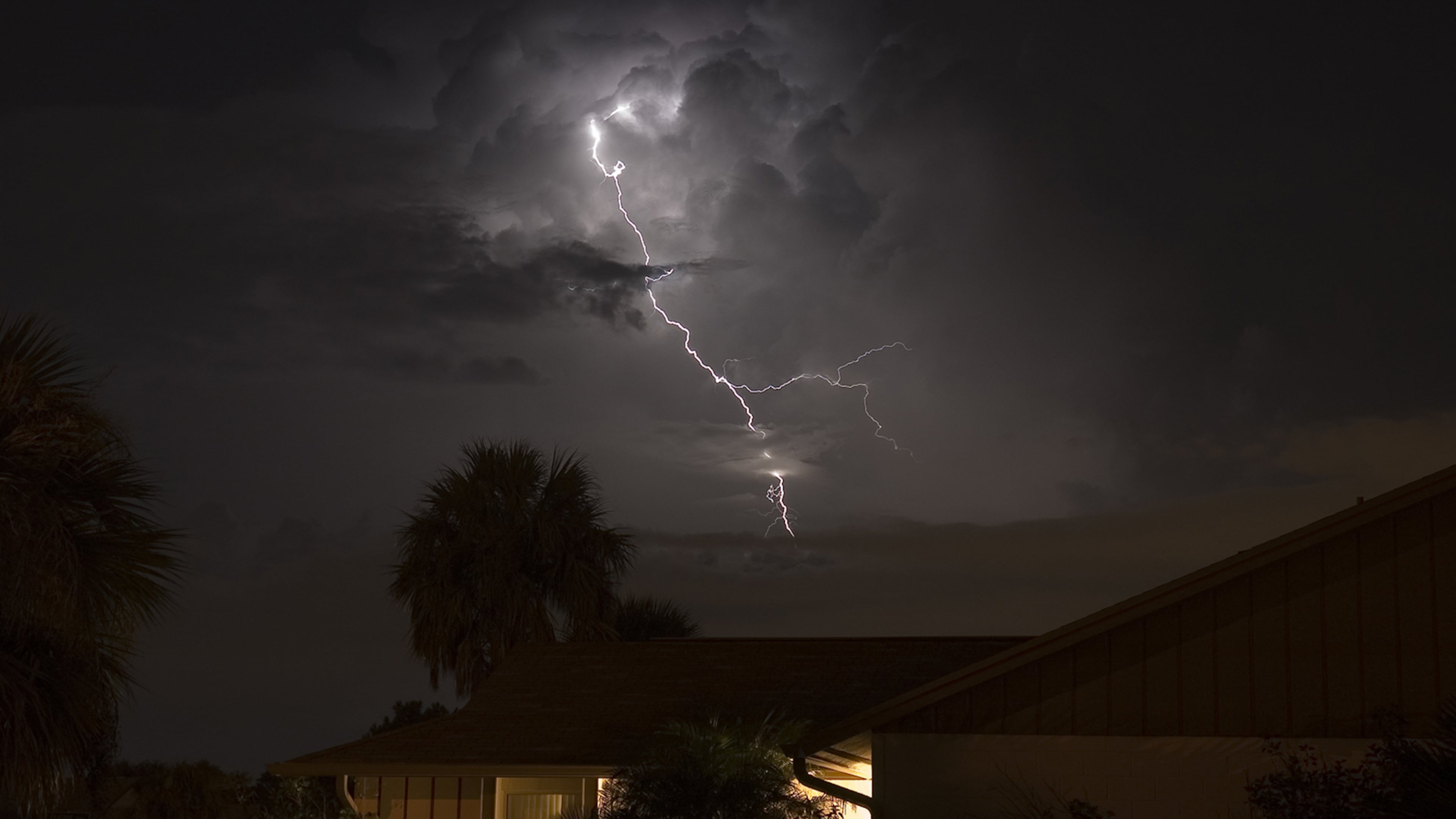Deaths of 2 teens highlight Georgia’s lightning risk

They were classmates and football teammates known for their positive energy and school spirit. Late last week, the Ware County High School graduates were killed when they were struck by lightning while fishing, according to investigators.
Waycross Mayor Dr. Michael-Angelo James told local media the teenagers, Joey Nelson, 18, and Randall Martin III, 19, had been fishing before a storm rolled in. He called the two “standout athletes” and beloved members of the football team while asking for prayers for their families.
“Their dedication to the sport, unwavering team spirit and infectious energy left a lasting impression on teammates, coaches and the broader Waycross community,” James said.
Through early Friday afternoon, 12 deaths because of lightning strikes have been reported in the U.S. this year, according to the National Lightning Safety Council. In the past 10 years, lightning fatalities have declined: 28 were killed in 2015 compared with 13 last year, according to the council. The two recent deaths in Georgia equal the two in North Carolina and New Jersey.
Meteorologists warn midsummer can be a rainy time in metro Atlanta, with pop-up storms always posing a risk. Lightning safety should be taken seriously, experts say.
“As the storms develop, the first lightning they produce may come as a surprise because there hadn’t been any lightning up to that point,” Channel 2 Action News meteorologist Brad Nitz said.
And it doesn’t have to be raining for lightning to strike, he added.
“Lightning can strike 5 miles, or even more sometimes, away from a thunderstorm,” he said. “As a rule of thumb, if you can hear thunder, you are close enough to the storm to be struck by lightning — even if it’s not raining where you are.”
The odds of being struck by lighting are less than 1 in a million, according to the Atlanta-based Centers for Disease Control and Prevention. Almost 90% of those struck survive, the CDC says. Males are four times more likely than females to be struck, and the average victim is 37 years old.
Those in the Southeast states are most at risk for lightning strikes, and Florida is considered the “lightning capital” of the country, according to the CDC.
In June, Jake Andrew Rosencranz, 29, of Denver, died after being struck by lightning while on vacation in New Smyrna Beach, Florida, according to his obituary. On Saturday, a lightning strike at the St. Augustine Pier injured three people, including one who was in critical condition, Action News Jax reported.
Last year, no deadly strikes were reported in Georgia. It could be because there is more public awareness of the dangers of lightning, or that technology advances, such as cellphone weather apps, mean fewer people are caught off guard, Channel 2 meteorologist Brian Monahan said. Being prepared and understanding the dangers of lightning are keys to staying safe, experts advise.
In Ware County, the lightning likely caught the two teens by surprise last week. Funeral arrangements were being finalized for the two friends, and GoFundMe pages were created to assist their families.
“JB was a proud graduate of the Ware County High School Class of 2025, full of promise and deeply loved by his family, friends and community,” Nelson’s page stated. “His sudden loss has left an unfillable void in the hearts of all who knew him.”
Martin’s GoFundMe page stated he had touched many lives, and the funds will be used to honor his legacy.
“Thank you for your love and support during this time,” the page states. “Keep our family in your thoughts and prayers as we continue to move forward throughout these challenging days.”
The WSB-TV Weather app can be downloaded online on wsbtv.com. Weather alerts are also available through the AJC news app, which can be downloaded at AJC.com.
LIGHTNING SAFETY TIPS
- If you hear thunder, lightning is close enough to strike you.
- When you hear thunder, immediately move to a safe shelter, such as a substantial building or an enclosed, metal-topped vehicle with windows up.
- Stay in your shelter at least 30 minutes after you hear the last sound of thunder.
- If indoors, avoid plumbing including sinks, baths and faucets.
- Stay away from windows and doors, and stay off porches.
- If outdoors, get away from bodies of water, and don’t shelter under a tree.
Source: National Weather Service


